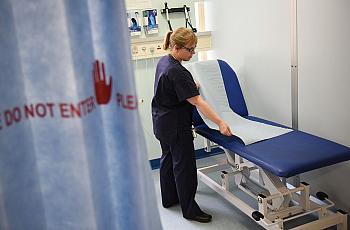
Pieter Cohen
Physician

Physician

Why getting COVID-19 testing if you only have mild symptoms or are simply worried could actually be more harmful than helpful.

A rigorous new study finds the "hotspotting" approach to health care super-users doesn't work as well as hoped. It's another case of hype outpacing the evidence.

Those of us who think that generic drugs are interchangeable with brand-name medications because the FDA requires them to be are in for an unpleasant surprise.

Why employers should stop wasting precious resources on ineffective health screenings and employee lifestyle programs.

Victoria Sweet’s new book offers a personal take on where modern medicine went wrong, and suggests that corporate restraints stand in the way of a more thoughtful approach to care.

A new study finds less than 20 percent of physicians' electronic notes were made up meaningful text. The remainder — mostly auto-filled "junk" text — does nothing to help doctors understand what's going on with patients.

Hospitals can be dangerous, uncomfortable places. As two recent pieces in high-profile medical journals detail, the "hospital-at-home" approach can offer a better alternative for many patients.
![[Photo: Three Lions/Getty Images] [Photo: Three Lions/Getty Images]](/sites/default/files/styles/teaser_list_thumbnail/public/title_images/unnamed%20%281%29.jpg?itok=g4b04Vbx)
Will a diagnosis of “prediabetes” motivate meaningful lifestyle changes among patients, or simply lead patients and providers to use medications rather than refocus on aggressive lifestyle changes?

In order to see whether heart stents actually improved patients' lives, the VA health care system decided to ask them directly, before and after surgery. But does this approach work?

Two physicians argue that the effort to track health care quality needs to do a better job of measuring the misuse and overuse of health care services.